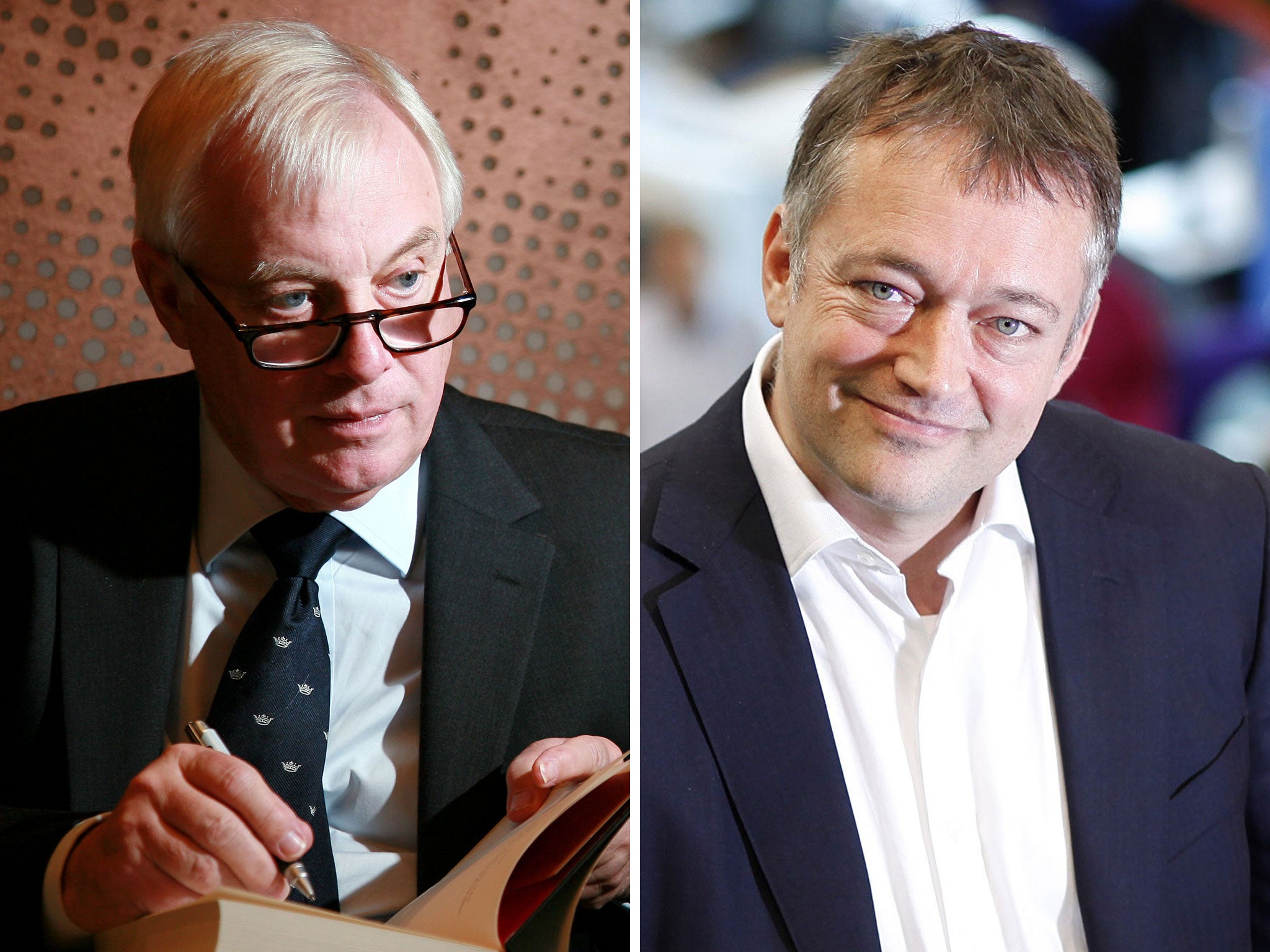Lord Patten under fire as 'dysfunctional' BBC faces Savile report
Reams of 'unedifying' internal documents show corporation's 'meltdown'

The BBC will be engulfed by the publication of a mountain of internal documentation revealing the “deeply unedifying spectacle” of bitter infighting and mistrust among its most senior managers and high-profile figures.
The 3,000 pages of evidence released this morning into the corporation’s mishandling of the Jimmy Savile sex-abuse scandal will reveal a dysfunctional management that contributed to one of the worst crises in the broadcaster’s history, The Independent has learnt. The evidence is understood to be embarrassing for Lord Patten, who faced calls for his resignation during the crisis.
The transcripts will also reveal the desperate attempts by senior BBC figures to blame others for the crisis. “It's just a deeply unedifying spectacle of people trying to cover their arses,” said one source who has read the material.
Helen Boaden, the BBC's director of news who was recently given a new job running BBC Radio, “does not come across well”, according to sources who have seen the evidence. Her testimony to Nick Pollard's review of BBC failings “seems to be all over the place”, one said.
Transcripts of interviews with BBC figures ranging from the Newsnight host Jeremy Paxman and the former Director-General George Entwistle to the chairman of the BBC Trust, Lord Patten, will be made available to the public this morning. The BBC will face criticism for its reluctance to hold to account the highly paid executives whose failings brought about the scandal. Peter Rippon, the former editor of Newsnight, was unveiled as the new editor of the BBC Online Archive, curating one of the largest audio-visual resources in the world. Mr Rippon's inaccurate blog on the BBC website, justifying his decision not to broadcast his programme's investigation into the BBC's former star presenter, Savile, was central to the chaotic response to the scandal that led to Mr Entwistle's resignation.
Although Mr Rippon's new post is less high-profile than his Newsnight job, it was described by the BBC as a “significant challenge that requires an experienced leader and editor” and is believed to command a salary of up to £150,000. In Pollard's initial report, published in December, he concluded that Mr Rippon's decision to drop the story was “seriously flawed” and that he made “a bad mistake” in not properly examining the evidence gathered by his team.
Mr Rippon's appointment follows the repositioning of Ms Boaden to a new post as director of radio. She retains her salary of £340,000. Ms Boaden was criticised by Mr Pollard's report for her failure to take a “more proactive role” when her division “was in virtual meltdown”.
Lord Patten will be braced for disclosure of the detailed infighting between BBC senior managers. Mr Pollard has already reported that the corporation's managers were “completely incapable of dealing with” the fall-out from the scandal and were reduced to “chaos and confusion”. Mr Entwistle's resignation followed a disastrous subsequent Newsnight investigation into child abuse which led to it defaming the former Tory party treasurer Lord McAlpine, to whom it paid £185,000 in damages. The BBC executive who signed off that piece, Adrian Van Klaveren, the former controller of BBC Radio 5 Live, has been given a new role as head of the organisation's coverage of the centenary of the First World War next year, on a pay package of £193,150.
The timing of the jobs shake-up coincides with strike action, which disrupted the BBC schedule this week, over proposed compulsory redundancies as part of a plan to cut 2,000 jobs at the organisation.
The Independent revealed this week that a separate BBC inquiry resulting from the Savile scandal, into bullying and sexual harassment within the organisation, has uncovered serial complaints against several members of staff. One senior executive faces more than 20 separate allegations of bullying.
Tony Hall, who starts work as the new BBC Director-General on 2 April, is anxious that the Savile scandal is dealt with before he arrives to begin his task of rebuilding staff confidence.
Parts of the witness testimony has been redacted, in some cases to avoid defamation, but more than 90 per cent of the material will be published, amounting to 1,000 pages of transcripts.
